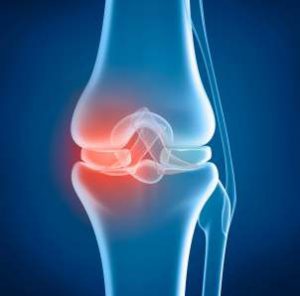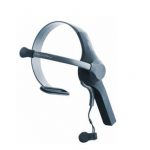Aster Hospital, Mankhool recently opened its state-of-art Cardiac Catheterization Lab or Cath Lab’ – a specialized unit that provides services for patients with various heart conditions, affirming foray into tertiary care services in the UAE as cardiovascular disease remains among the leading causes of death.
Growing number of people in the UAE complain of joint problems as the main reason for seeking treatment. For some, even day to day activities like walking or taking a small flight of stairs can be a tedious activity causing excruciating pain in the knee. Most resort to non-steroid anti-inflammatory drugs, vitamins, physical therapy or cortisteroid injections to ease the pain – these however do not relieve the pain in the long run.
In the UAE, factors such as an ageing population, rising obesity, prevalence of arthritis, and lifestyle diseases such as diabetes, affect the joints, whetting the demand for specialized orthopaedic centres. Knee replacement surgery is a suitable fix and Dr. Samih Tarabichi, Consultant – Consultant Orthopaedic Surgeon, specialized in Joint Replacement at Burjeel Hospital for Advanced Surgery, Dubai, shed light on the subject in conversation with Vasujit Kalia.
“In recent times, we see that total knee replacement surgeries among younger patients’ are increasing due to unhealthy lifestyle choices and obesity although patients between the age of 60-69 still remain the highest number of cases. The new technique that we use is Persona CR implants which save bone and ligaments. Persona – The Personalized Knee system is the most comprehensive, anatomically accurate and highest fidelity knee replacement system ever designed that allows our surgeons to provide each patient with a personalized fit.”
In a knee replacement surgery, the patient is first put under general anaesthesia or localized anaesthesia where he or she is numbed below the waist. An 8 to 12 inch cut is made in the front of the knee. The damaged part of the joint is then removed from the surface of the bones, and the surface is then shaped to hold a metal or plastic artificial joint,” he said.
 “The artificial joint is attached to the thigh bone, shin and knee cap either with cement or a special material. When fit together, the attached artificial parts form the joint, relying on the surrounding muscles and ligaments for support and function. Joint replacement procedures were initially performed in the early 1970s and the average ar tificial joint would last approximately 10 years.
“The artificial joint is attached to the thigh bone, shin and knee cap either with cement or a special material. When fit together, the attached artificial parts form the joint, relying on the surrounding muscles and ligaments for support and function. Joint replacement procedures were initially performed in the early 1970s and the average ar tificial joint would last approximately 10 years.
The average hospital stay after knee joint replacement is usually three to five days. If a single knee is replaced, patients are mobilized after 12 to 24 hours as per the pain threshold of patient.
Patient can walk with a walker after around 2 weeks. Stitches are removed after 12 to 14 days and aggressive physiotherapy is commenced, training of step climbing and getting down. Driving is usually allowed after 3 to 4 weeks.
“Nowadays, about 85 per cent of the joint implants will last 20 years or more. Improvements in surgical technique and artificial joint materials make these artificial joints last even longer,” explained Dr Tarabichi.
“The recent improvements in this type of surgery include minimally invasive techniques where small incisions help in ensuring a speedy recovery and auto-transfusion where the patient’s own blood can be used if a transfusion is required. Also for specific cases, computer navigation, 3D printer and (PSI) patient specific instruments – help in total knee arthroplasty (TKA) accuracy in placing the implant in excellent alignment which helps it last longer. And lastly gender based implant makes better alignment depending on whether the patient is a male or a female.”
 The average hospital stay after knee joint replacement is usually three to five days. If a single knee is replaced, patients are mobilized after 12 to 24 hours as per the pain threshold of patient. Patient can walk with a walker after around 2 weeks. Stitches are removed af ter 12 to 14 days and aggressive physiotherapy is commenced, training of step climbing and getting down. Driving is usually allowed after 3 to 4 weeks. On an average, through good muscle strengthening and flexibility exercises patients move freely after 6 weeks out of their house.
The average hospital stay after knee joint replacement is usually three to five days. If a single knee is replaced, patients are mobilized after 12 to 24 hours as per the pain threshold of patient. Patient can walk with a walker after around 2 weeks. Stitches are removed af ter 12 to 14 days and aggressive physiotherapy is commenced, training of step climbing and getting down. Driving is usually allowed after 3 to 4 weeks. On an average, through good muscle strengthening and flexibility exercises patients move freely after 6 weeks out of their house.
“The patient may also have to visit an outpatient physical therapy facility as the final stage of the rehabilitation process. Outpatient therapy may last from 4 to 6 weeks, depending on the progress,” he added.
“Knee replacement surgeries offer sufferers a new lease of life and Burjeel Hospital for Advanced Surgery, Dubai has always been committed to provide the best healthcare with world-class medical experts and state-of-the-art technology to the residents of the UAE and GCC.” concluded Dr Tarabichi.
















